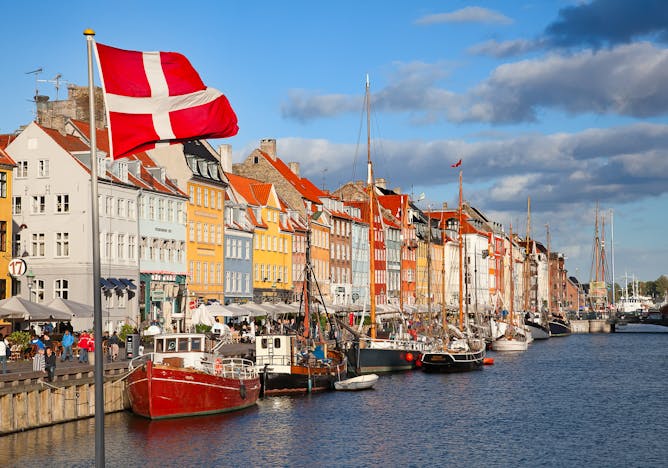|
Top stories
Note from Miriam
A large number of people have moved out of cities since the COVID pandemic. And maybe it's not surprising: cities are often polluted, noisy and overpriced – seemingly not the best recipe for happiness.
But new research of housing in Denmark shows that people who live in high-rise buildings in city centres actually have surprisingly low rates of depression – particularly if they have access to green space or water bodies. By comparison, those residing in the suburbs have a higher incidence of depression.
The researchers hope that their work will ultimately inform urban planning, for example by encouraging more high rises that are surrounded by some green space. This wouldn’t just make sense from a mental health perspective. Suburban areas, with a medium density of low-rise buildings, are also less sustainable than denser city neighbourhoods.
Elsewhere, the UK government’s latest messaging on welfare fraud appears to have revived a troubling stereotype that people on benefits are “scroungers” or “cheats”. And after a new report revealed that more than 35,000 incidents of sexual misconduct have occurred in the NHS over the past five years, we hear how the problem could be tackled.
Thank you to all our readers who have donated during our campaign this month. If you are able to support us and haven't yet, please consider donating to The Conversation today.
Donate
|

Copenhagen, where people enjoy each other’s company – and the proximity to the water.
Fedor Selivanov/Shutterstock
Karen Chen, Yale University; Stephan Barthel, Stockholm University
Areas of Danish towns and cities with fewer people and more cars come with a higher risk of depression.
|
Politics + Society
|
-
Stefan Wolff, University of Birmingham
China’s is building a transport and trade infrastructure in central Asia.
-
Albert Sanchez-Graells, University of Bristol
Without more transparency about AI use, it will be difficult for people to challenge biased decisions against them.
-
Leo Woodend, University of Leeds
The idea that people are cheating the benefits system has a long history in British society.
|
|
Arts + Culture
|
-
Sukla Chatterjee, University of Aberdeen
Judges called it a profound novel that asks the contemporary question: what happens to us when our memories disappear?
-
Seán Roberts, Cardiff University; Steph Rennick, University of Glasgow
Even games with female protagonists had more dialogue from male characters.
|
|
Business + Economy
|
-
Amir M. Sharif, University of Bradford; Kamran Mahroof, University of Bradford; Liz Breen, University of Bradford
Change and communication across the food supply chain will help stop prices from rising further.
-
Costas Lapavitsas, SOAS, University of London
My research shows that UK price rises are likely to have been caused by high profits, falling wages and weak production over decades
|
|
Environment
|
-
Keiron Roberts, University of Portsmouth; Fay Couceiro, University of Portsmouth; Muhammad Ali, University of Portsmouth
Polylactic acid – a popular bioplastic – does not readily break down when released into the ocean, and could disrupt marine ecosystems
|
|
Health
|
-
Adrian Desai Boström, Karolinska Institutet; Peter Andersson, Karolinska Institutet
There is often a long delay between the onset of bipolar symptoms and correct diagnosis and treatment which puts vulnerable young people at risk of suicide.
-
Sarah Steele, University of Cambridge
A new report reveals that more than 35,000 incidents of sexual misconduct have occurred in the NHS over the past five years. But the true number is likely much higher.
|
|
Science + Technology
|
-
Sarah Watts, University of Stirling
Why we need to pay more attention to these minute flowers and how they survive in some of the harshest places in the world.
|
|